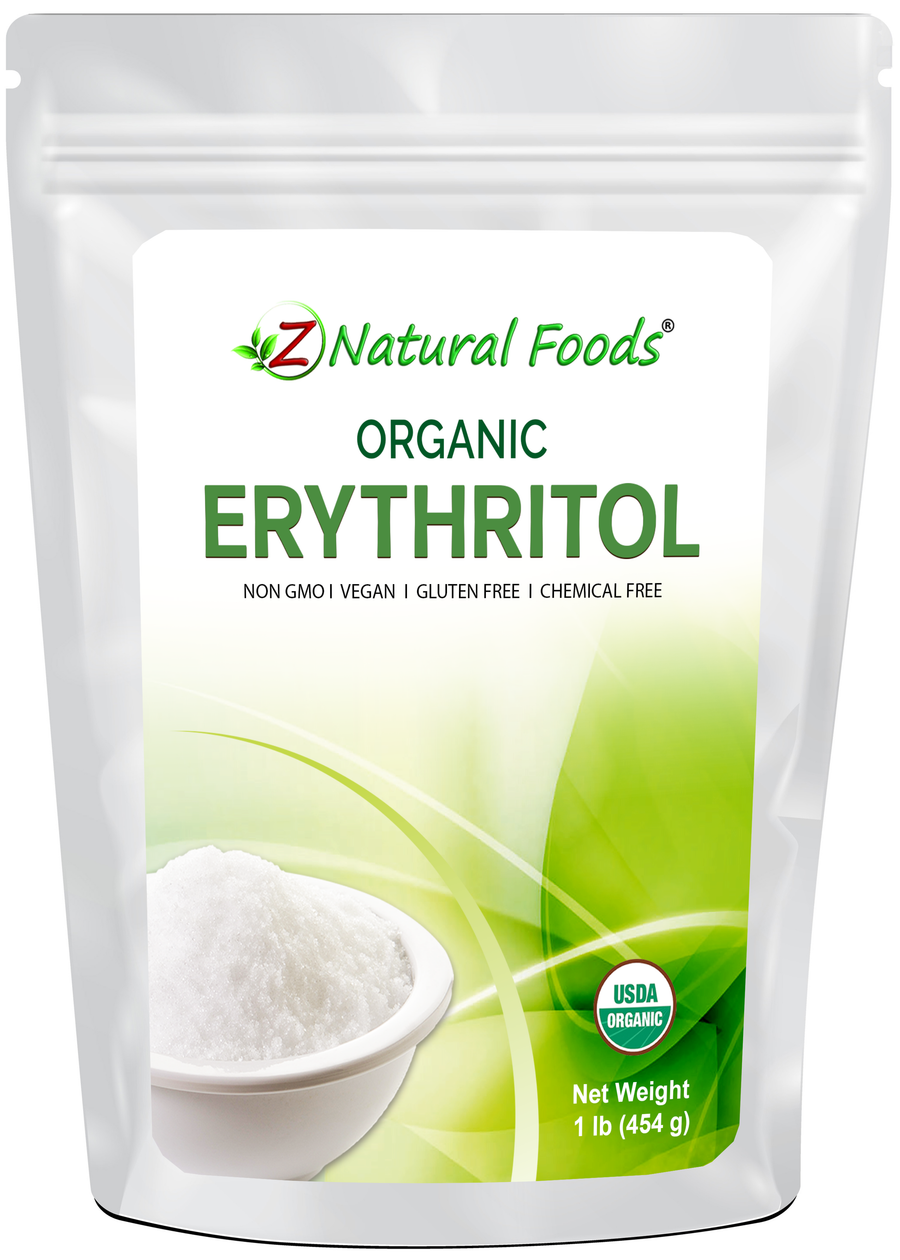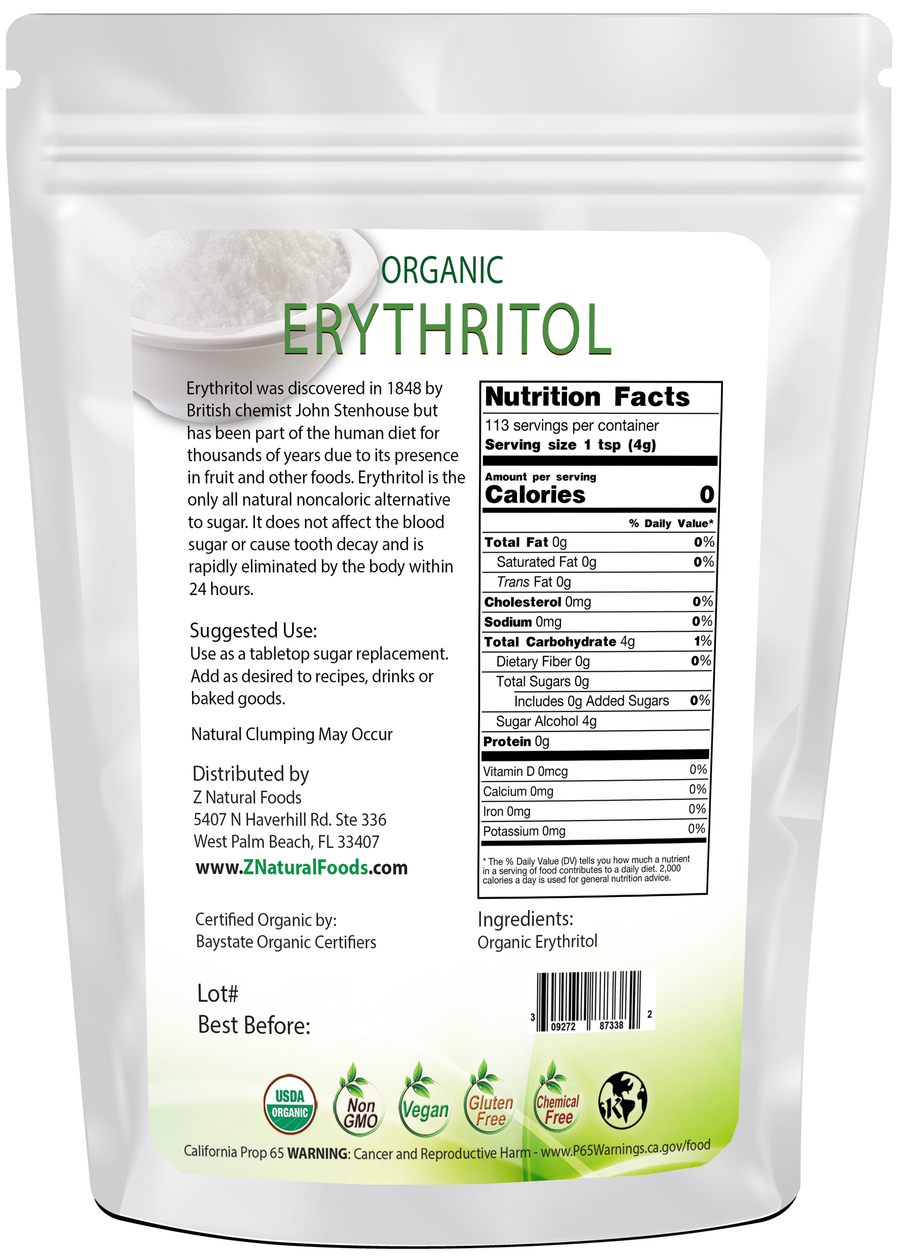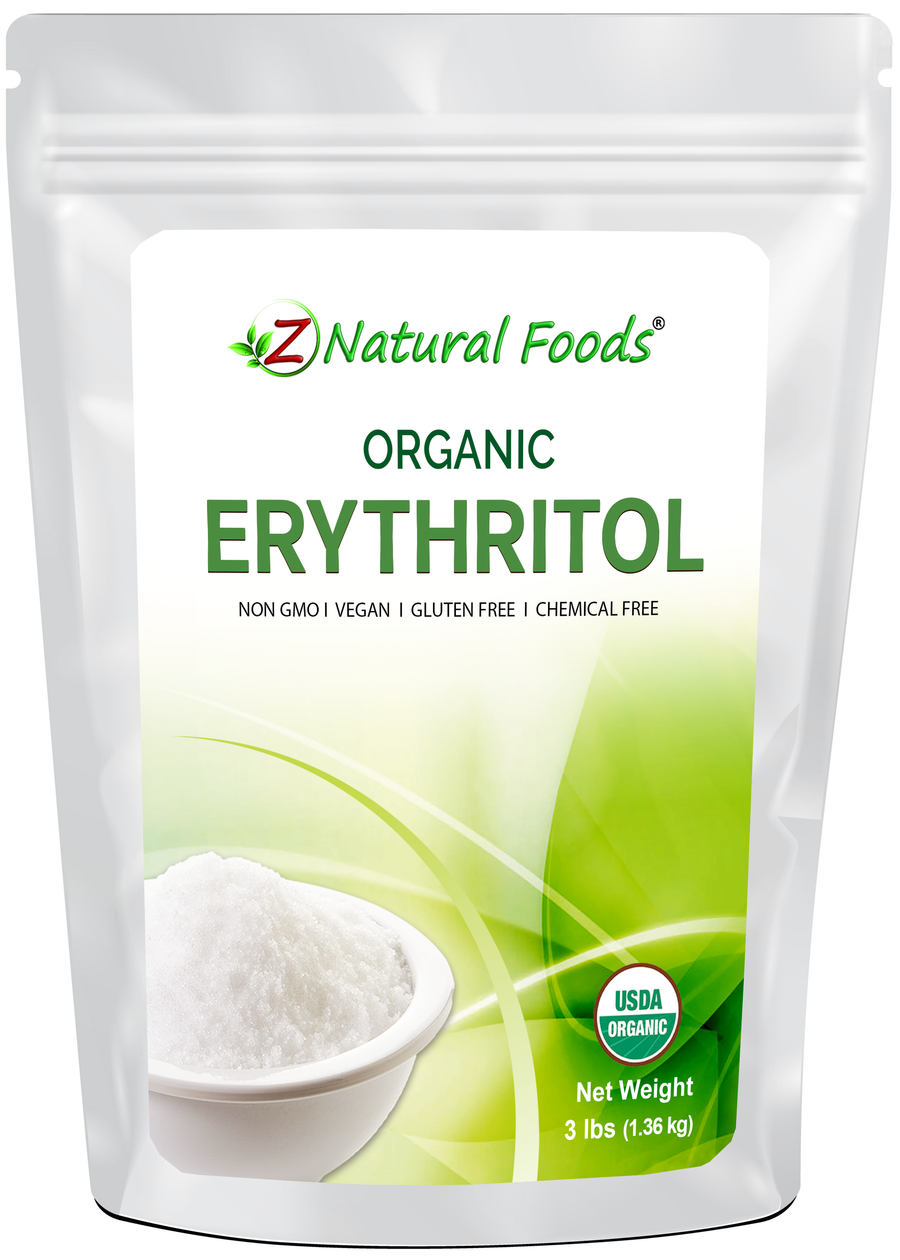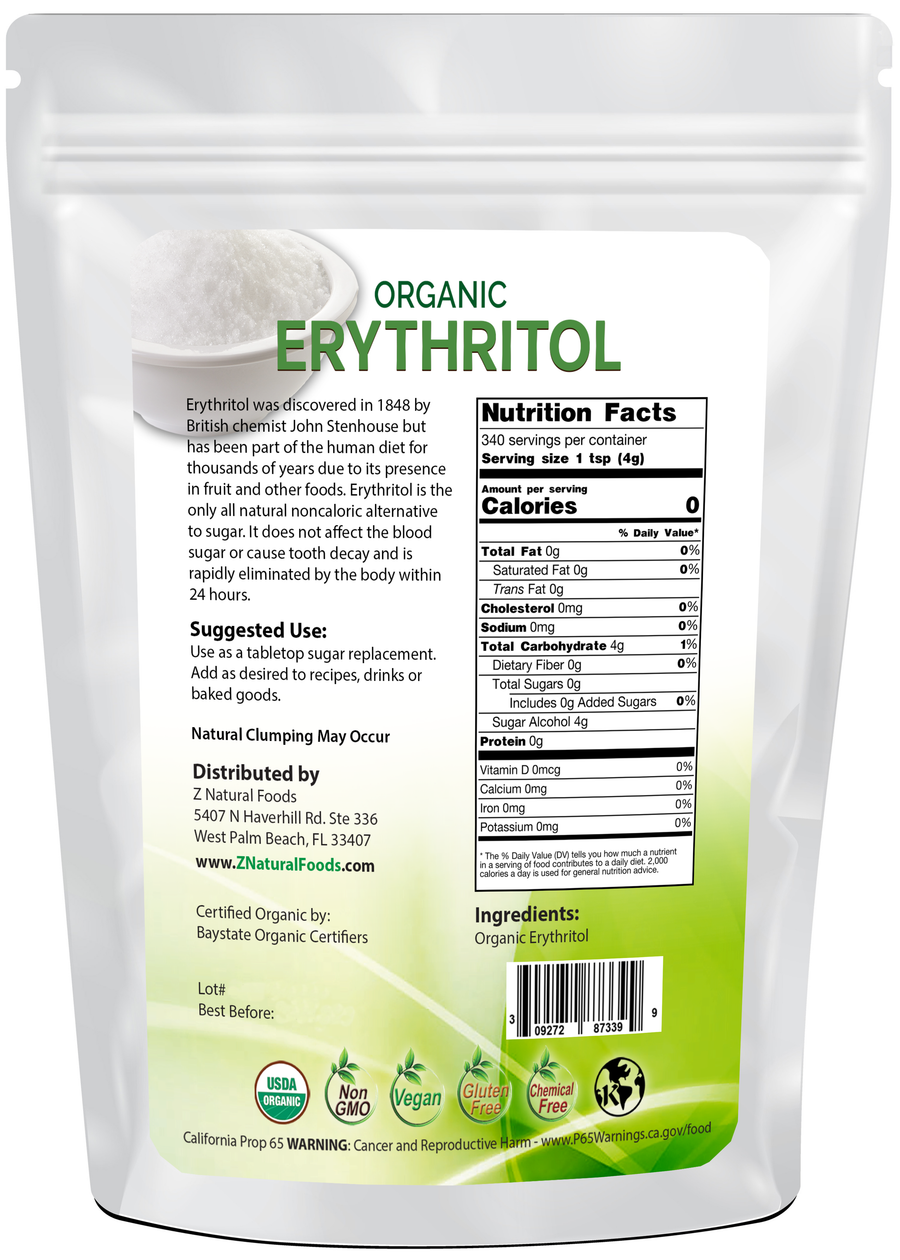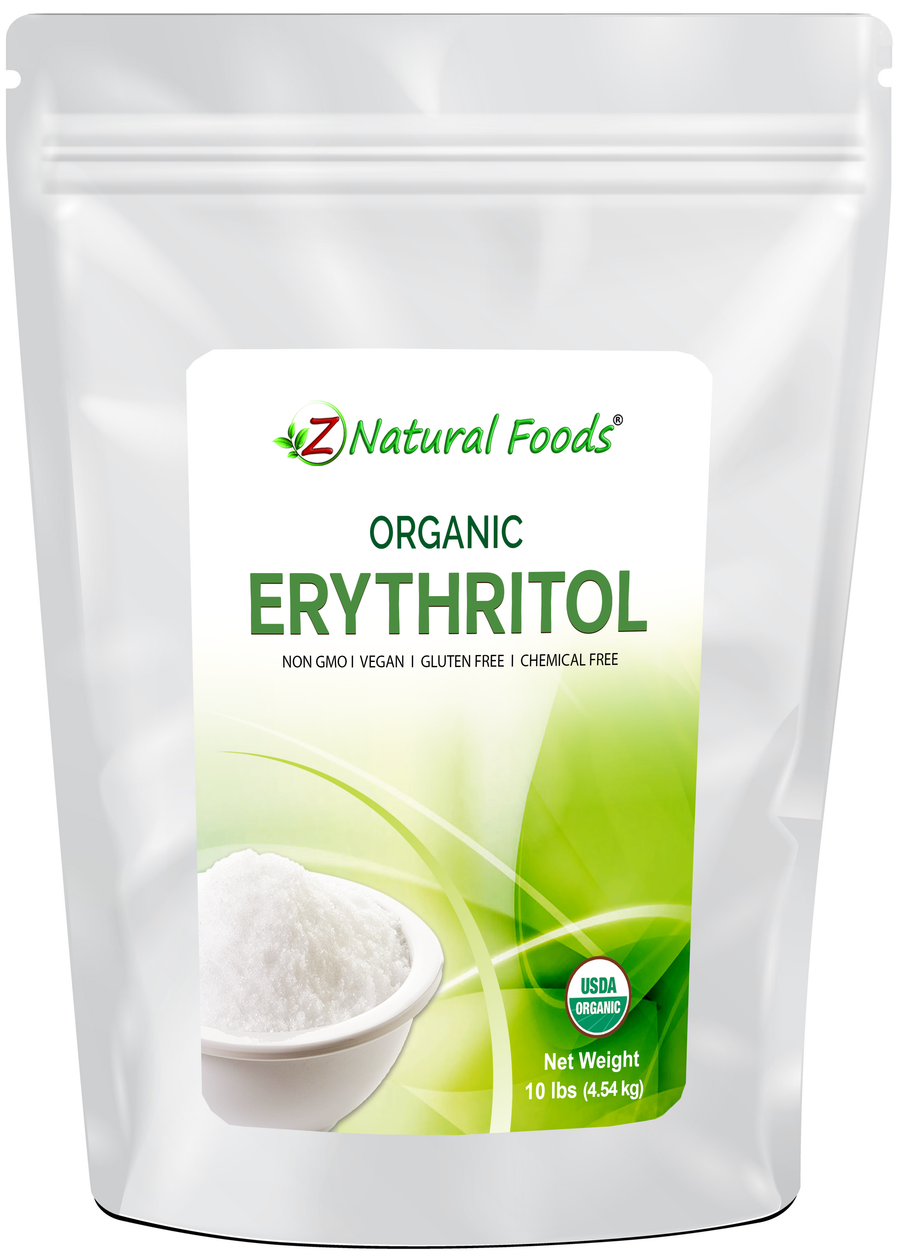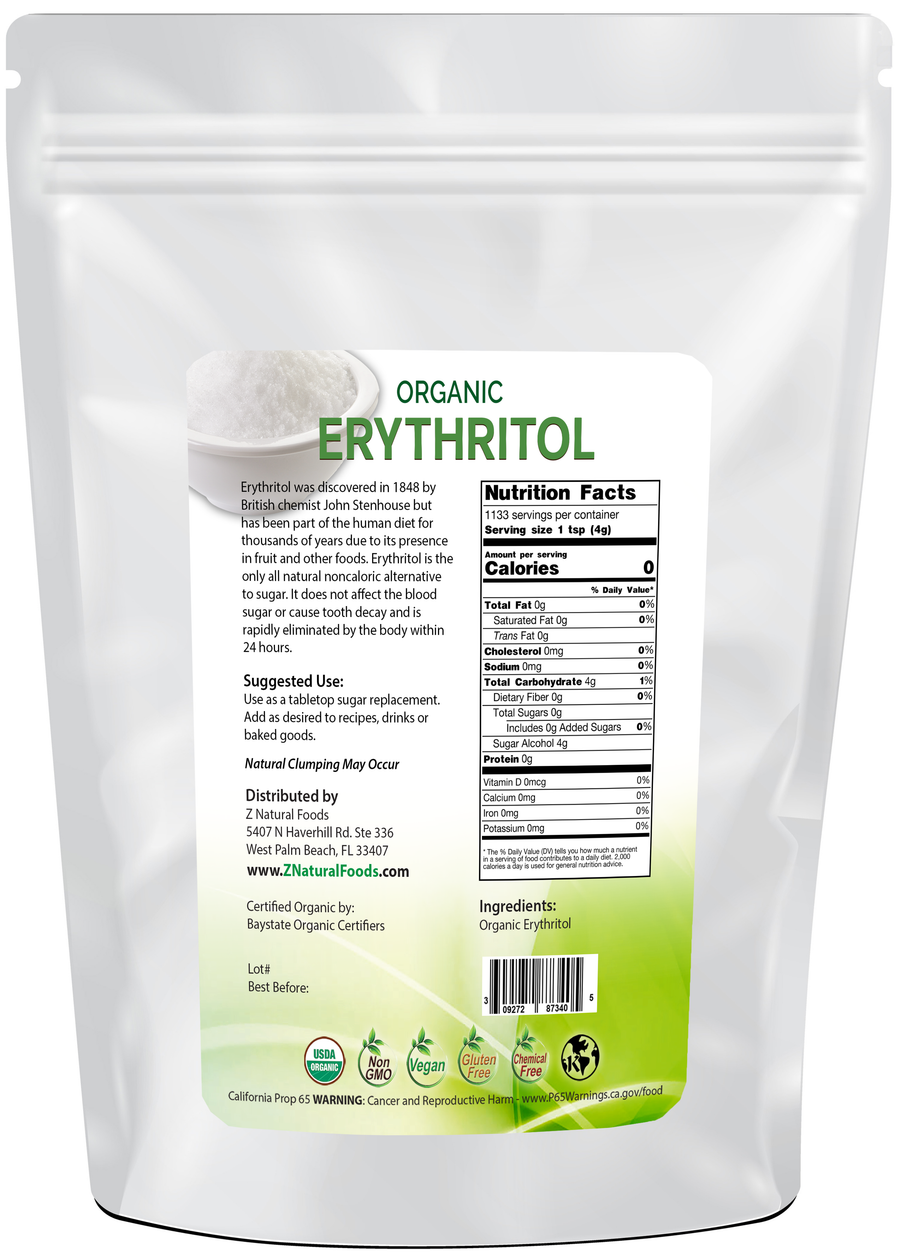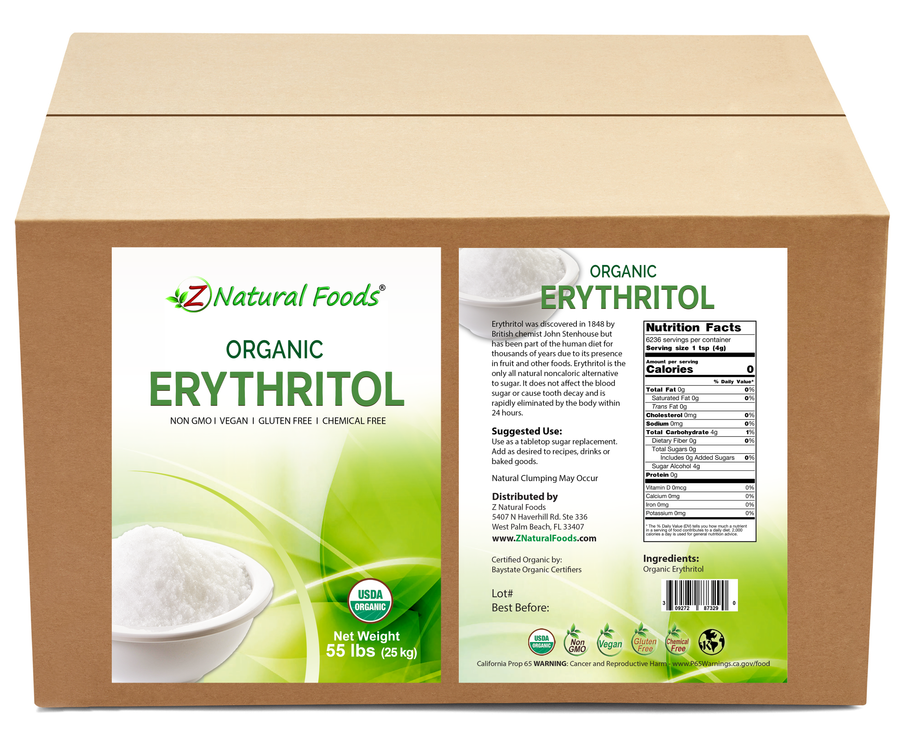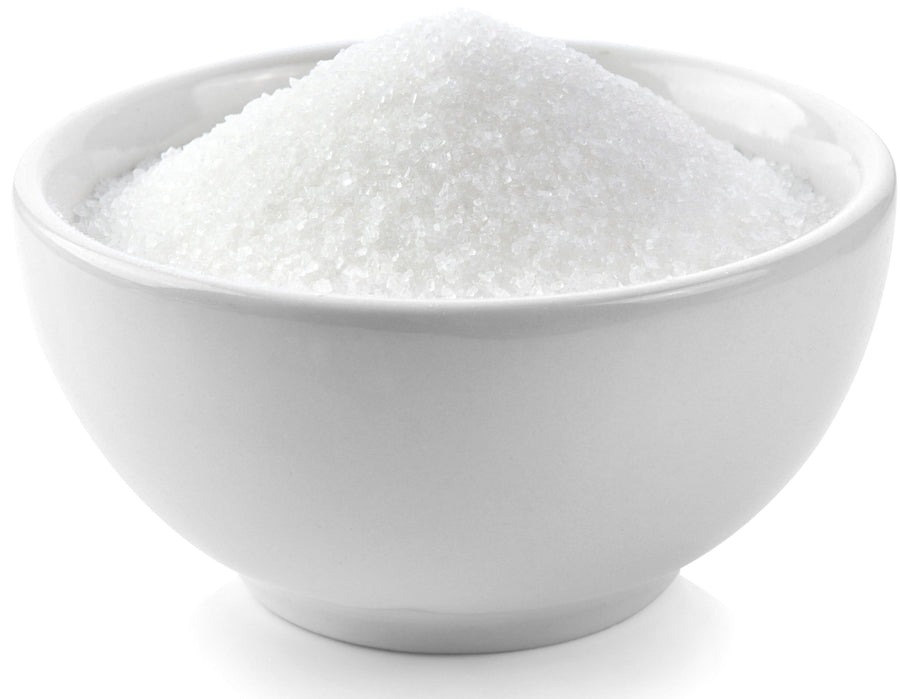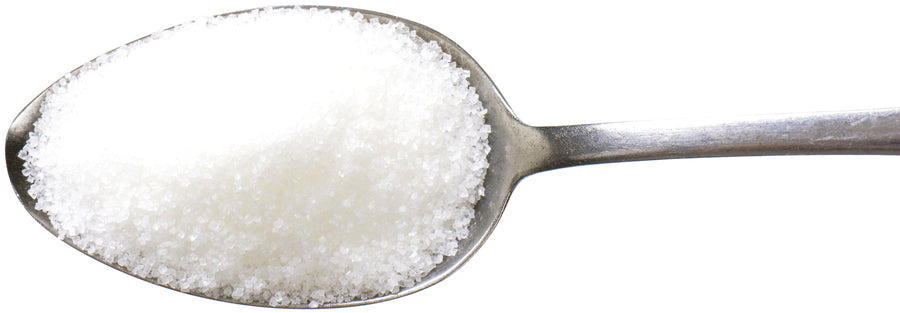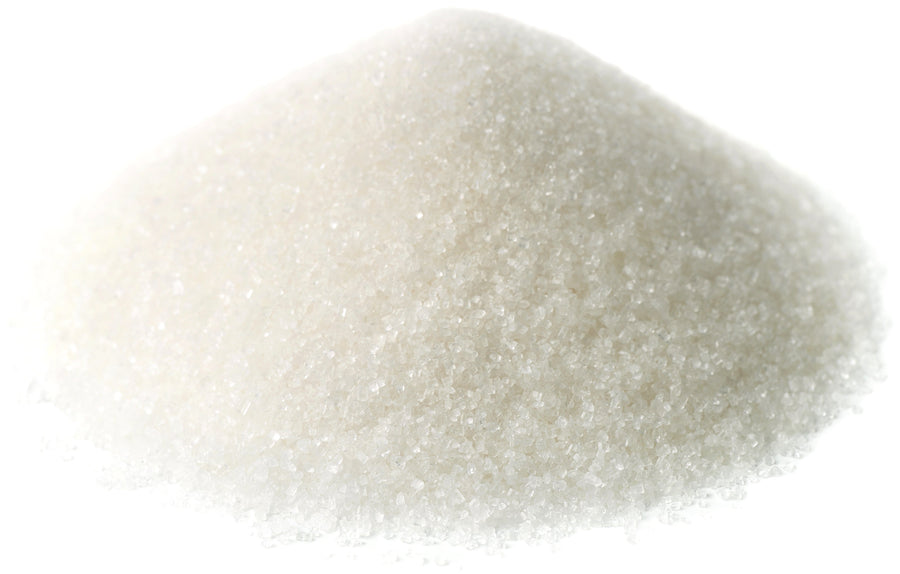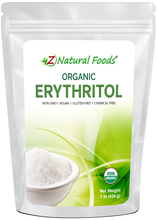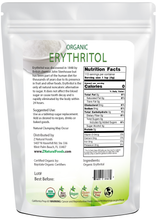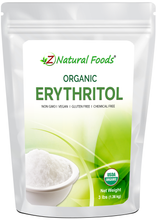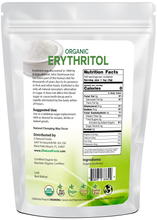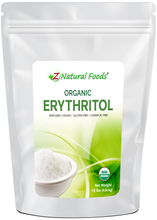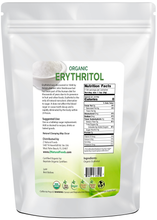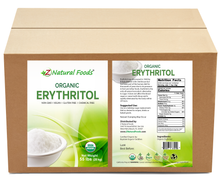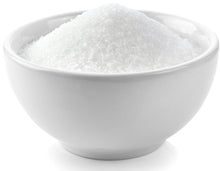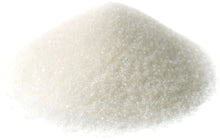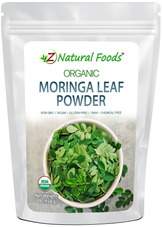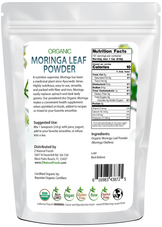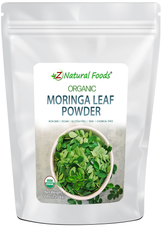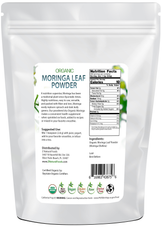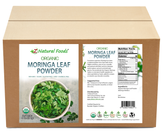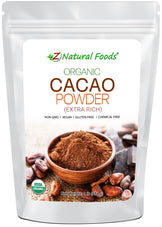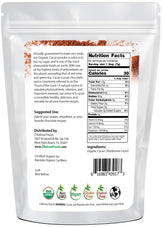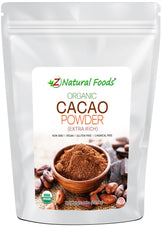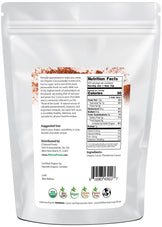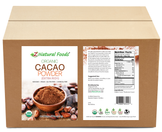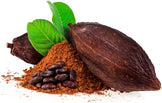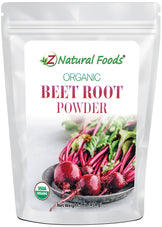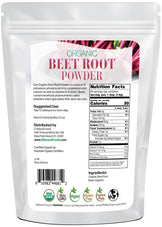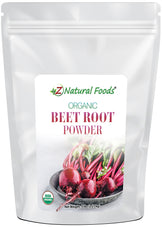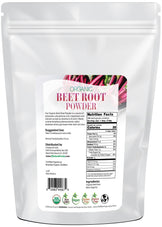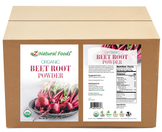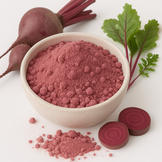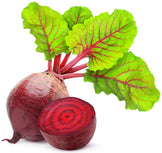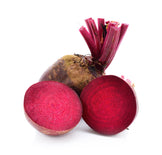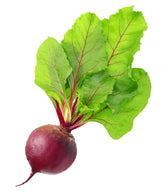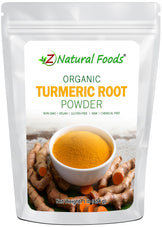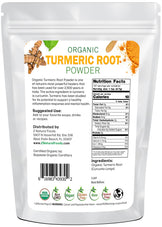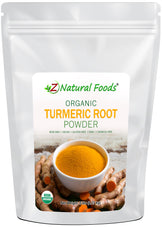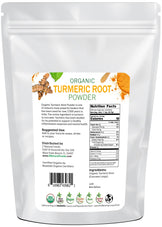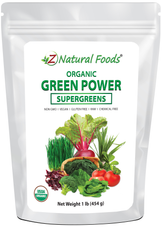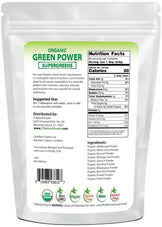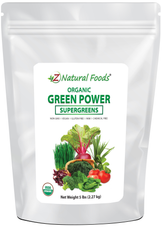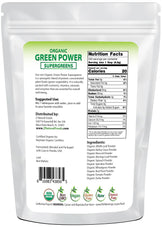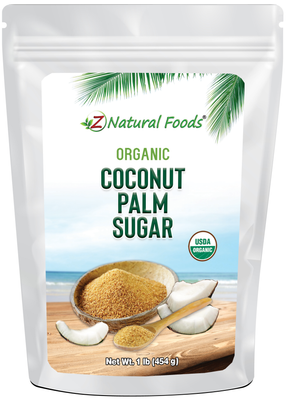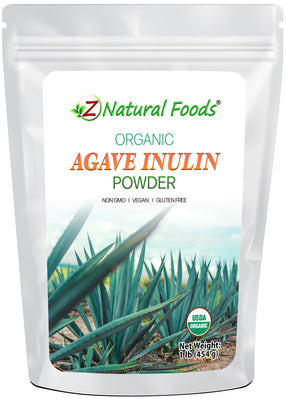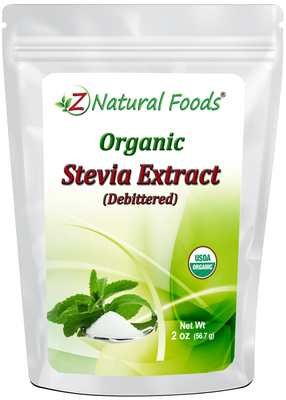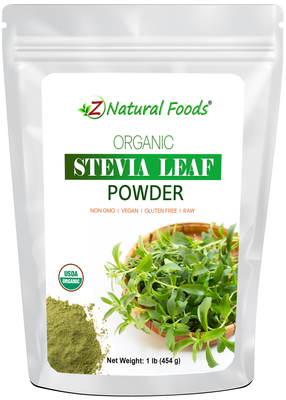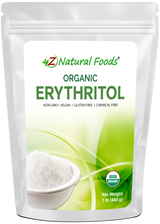About Product
Organic Erythritol is a naturally occurring sugar alcohol found in fruits like pears, grapes, and melons, as well as mushrooms. Made from organic, non-GMO plant sources, it provides a clean, sweet taste with a refreshing finish.
This versatile, shelf-stable sweetener can be used in baking, cooking, beverages, and confections as a substitute for traditional sugar. With its smooth texture and mild cooling effect, organic erythritol is a popular choice for a wide variety of recipes.
Our Erythritol is produced in a GMP / ISO9001-certified facility and meets the standards of purity set by U.S. Pharmacopoeia. Each batch undergoes extensive testing for purity and safety.
This product is 100% natural and minimally processed. Taste, smell, texture, and color vary from batch to batch.
Suggested Use: Use as a tabletop sugar replacement. Add as desired to recipes, drinks, or baked goods.
Ingredients: Organic Erythritol
Certifications: Certified USDA Organic.
Origin: China. Packaged with care in Florida, USA.
How to Maintain Optimum Freshness
- This product is packaged in airtight stand-up, resealable foil pouches for optimum freshness.
- Once opened, push the air out of the pouch before resealing it to preserve maximum potency.
- Keep your powder in a cool, dark, dry place.
This product is 100% natural and minimally processed:
Taste, smell, texture, and color vary from batch to batch. Go here to learn why our products may naturally vary.
The important protections we take to bring you safe and nutritious superfoods:
Please go here to discover the essential steps we take to deliver fresh, quality nutrition.
Bulk Quantities?
Need to order a large quantity of our products? We are happy to help! Please get in touch with our Bulk department to discuss the details.
* Product packaging, pictures, and origin may vary.
Sources & References
1. FDA/CFSAN: Agency Response Letter: GRAS Notice No. GRN 000076
2. The discovery of erythritol, which Stenhouse called "erythroglucin", was announced in: Stenhouse, John (January 1, 1848). "Examination of the proximate principles of some of the lichens". Philosophical Transactions of the Royal Society of London 138: 63"“89; see especially p. 76.
3. Shindou, T., Sasaki, Y., Miki, H., Eguchi, T., Hagiwara, K., Ichikawa, T. (1988). "Determination of erythritol in fermented foods by high performance liquid chromatography". Shokuhin Eiseigaku Zasshi 29 (6): 419"“422.
4. http://www.foodnavigator-usa.com/Markets/Monk-Fruit-In-The-Raw-takes-on-Nectresse-in-tabletop-sweetener-battle
5. Arrigoni, E.; Brouns, F.; Amadò, R. (Nov 2005). "Human gut microbiota does not ferment erythritol.". Br J Nutr 94 (5): 643"“6. PMID 16277764.
6. Munro IC, Berndt WO, Borzelleca JF, et al. (December 1998). "Erythritol: an interpretive summary of biochemical, metabolic, toxicological and clinical data". Food Chem. Toxicol. 36 (12): 1139"“74. doi:10.1016/S0278-6915(98)00091-X. PMID 9862657.
7. Storey, D.; Lee, A.; Bornet, F.; Brouns, F. (Mar 2007). "Gastrointestinal tolerance of erythritol and xylitol ingested in a liquid.". Eur J Clin Nutr 61 (3): 349"“54. doi:10.1038/sj.ejcn.1602532. PMID 16988647.
8. Hino, H.; Kasai, S.; Hattori, N.; Kenjo, K. (Mar 2000). "A case of allergic urticaria caused by erythritol.". J Dermatol 27 (3): 163"“5. PMID 10774141.
9. Arrigoni E, Brouns F, Amadò R (November 2005). "Human gut microbiota does not ferment erythritol". Br. J. Nutr. 94 (5): 643"“6. PMID 16277764.
10. Wohlfarth, Christian (2006). CRC handbook of enthalpy data of polymer-solvent systems. CRC/Taylor & Francis. pp. 3"“. ISBN 978-0-8493-9361-7.
11. Jasra,R.V.; Ahluwalia, J.C. 1982. Enthalpies of Solution, Partial Molal Heat Capacities and Apparent Molal Volumes of Sugars and Polyols in Water. Journal of Solution Chemistry, 11 ( 5): 325-338. Template:ISSN 1572-8927
12. Kawanabe J, Hirasawa M, Takeuchi T, Oda T, Ikeda T (1992). "Noncariogenicity of erythritol as a substrate". Caries Res. 26 (5): 358"“62. PMID 1468100.
13. Erythritol is a sweet antioxidant - https://pubmed.ncbi.nlm.nih.gov/19632091/
* Reviews & Success Stories Disclaimer
Product reviews solely reflect the views and opinions expressed by the contributors and not those of Z Natural Foods. Z Natural Foods does not verify or endorse any claims made in these reviews. Statements have not been evaluated by the FDA and are not intended to diagnose, treat, cure, or prevent any disease or health condition.REFERRAL PROGRAM
Share your personal link to your friends and welcome them with rewards. Claim yours when they make their first purchase.

GIVE
$10 off discount

GET
$10 off discount
Other products in the same category
Stevia Leaf Powder - Organic
£18.05
Erythritol
£6.56
